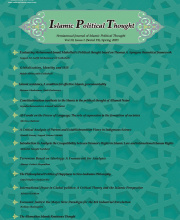۱.
کلید واژه ها:
ISIS Central Asia Extremist Fundamentalist Groups Iran India
Since its emergence in the Levant including Syria and Iraq, the Islamic State of Iraq and Syria (ISIS Takfiri militant group) selected province of Khorasan (Afghanistan and some parts of Central Asia) as its territory, thus established its sovereignty and identity under the same title. The main question underlying the current study is that what would be the main contexts and substrates for the gradual presence and influence of ISIS in the region? The main hypothesis underlying the article is that: secular authoritarian political structure, the approach adopted and inappropriate actions taken by the governments in the region in response to the extremism, extremist fundamentalist groups in the region, fragile and complex social fabric of Central Asian countries and also the presence of the nationals in the countries of the region in ISIS structure are some of the most important factors that can lead to the formation of ISIS in the region. This presence is a common security threat to Iran and India, which can strengthen the need to security cooperation between the two countries. The current article uses an analytical method, and for data collection, the article has utilized reliable library-based sources.
۲.
کلید واژه ها:
Imam Khomeini Islamic Government Divine Laws Divine Legitimacy Popular Acceptance
Imam Khomeini is the first jurist who put forth the necessity of establishment Islamic government in the Occultation era and significantly attempts to prove the need for administrative power to implement Islamic decrees. He invoked to the Holy Prophet method in establishing an Islamic state and the fact that the nature of Islamic laws that are universal and eternal by the aim of managing the society to achieve welfare, happiness, and perfection. He claimed that these divine laws are not restricted to the Holy Prophet’s era and they are not executable without an Islamic government with appropriate Islamic institutions and organizations to implement the divine laws in the Muslim society, which will be examined in the first part of this research. Finally, the questions, what are the features of Islamic government in comparison with other forms of government such as secular, liberal democracy, tyrannical, monarchy, and communist according to Imam Khomeini’s point of view will be investigated in the second section. One of the important features that distinguishes Islamic government from other forms of governments is the leadership that Imam Khomeini strongly attempts to prove its divine legitimacy and popular acceptance. He believes that the person, who wishes to be as the successor of the Holy Prophet (PBUH) and infallible Imams (AS), should appointed by Allah Almighty through the Holy Prophet and Imams (AS) and has to possess at least two qualifications, the knowledge of Islamic sciences, and the justice. Besides, he must have the general competencies of intelligence and administrative capability to govern the Islamic community. In Imam Khomeini’s opinion, if a person is the most knowledgeable in Religion Science, but fails to recognize the expedient of society or generally lacks in insight the social and political context and in decision-making power, this person is not Mujtahid in social and governance issues and cannot take the reigns of the community.
۳.
کلید واژه ها:
freedom Liberalism Virtue Security Ownership
Freedom is an abstract concept which is more understandable by its limitations. The question is that, is there a comprehensive concept of freedom in western idealism? For this purpose, this study created some conceptual research in the poles of western idealism. Accordingly, freedom in framework of Socratic philosophy had no context except virtue orientation. Then, it was reduced to security and property in the new period. The present study used the discourse analysis of freedom to show why and how the concept of freedom has an underlying and philosophical concept in old and new schools. Thus, a single and undeniable attitude to freedom in western idealism is non-scientific and non-historical. The present study selected the analytical comparative method to discuss the concept of freedom discourse in western political thought in old and new periods, indicating why and how freedom is a discourse concept; or at least belongs to its specific community, and cannot be necessarily compared in a generalized, universal way.
۴.
کلید واژه ها:
Khudi Ego Islam Imperialism Colonialism Western Civilisation Equality Quran Democracy Socialism Caliphate
This paper discusses some key points in the philosophical, political and economic thought of the famous Indian Muslim poet Dr. Mohammad Iqbal. Iqbal sought to reform the Muslim identity and the wider Islamic world in order to deal with the Western challenge. He was deeply perturbed by the ideological domination of the East by the West in the political, cultural and social spheres. His political and economic perceptions, as indicated in his poems, seek to revive the self-confidence and creativity in the Muslim Ummah (Community). Iqbal exhorts the Muslims to realise their identity and selfhood (Khudi) to confront the Western challenge. Iqbal’s politico-economic thought is tinged with his dislike of capitalism and colonial rule. As an anti-dote to these elements, Iqbal speaks positively of socialism and its main proponents in the late nineteenth and early twentieth century although he rejects the atheistic form of socialism. Iqbal also purposes a reconstruction of Islamic thought in order to make it compatible with the demands of the modern world. All in all, Iqbal’s philosophy reveals an eclectic mixture of Islamic modernism, anti-imperialism, pan-Islamism and a desire for a socially equitable society within an Islamic framework.
